All products featured are independently chosen by us. However, SoundGuys may receive a commission on orders placed through its retail links. See our ethics statement.
Best DJ headphones
April 1, 2025



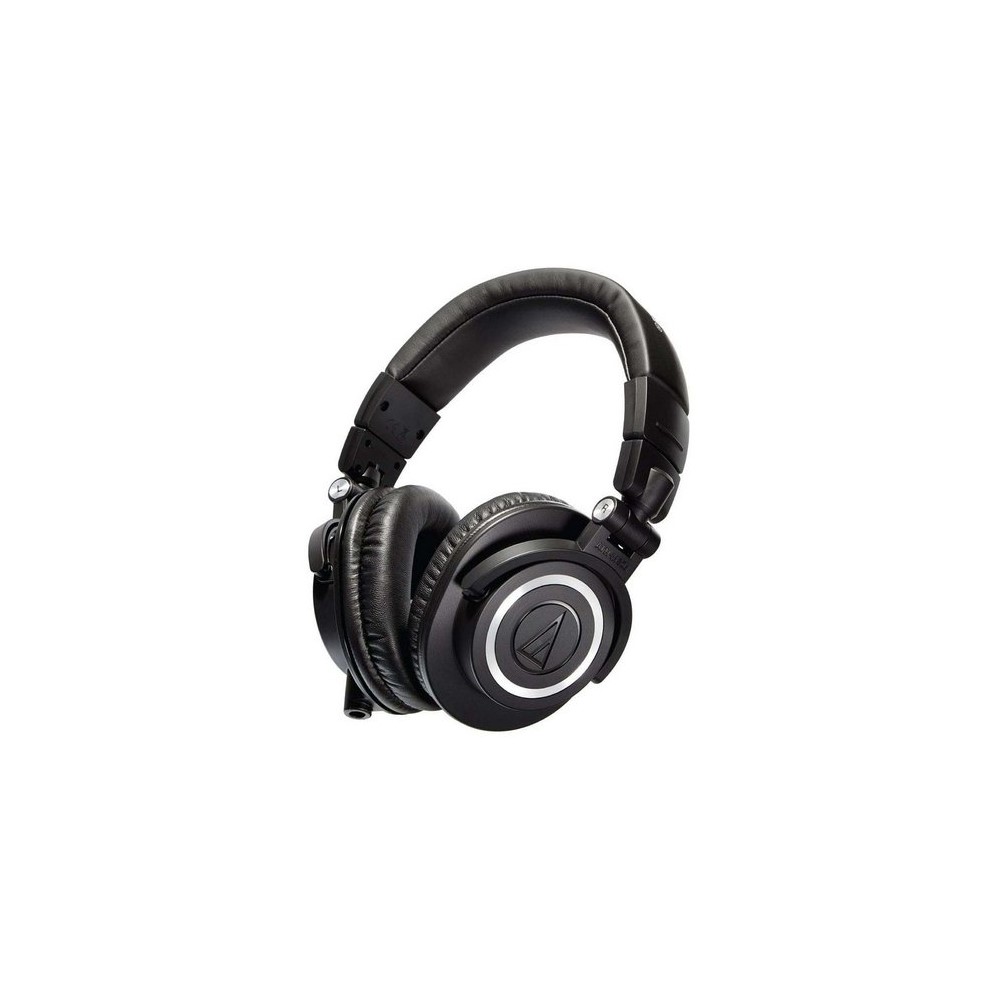

While many people like headphones because they enjoy listening to music or a heavy bass, some people need headphones to do their jobs. We already took a look at some of the best studio headphones, so now we’re going to look at another group of audio professionals: DJs. Whether you’re gearing up for your first gig or your next tour, the best DJ headphones won’t make you a better DJ, but they will make it easier to do your job.
What's new?
- This article was updated on April 1, 2025, to remove outdated picks, correct formatting.
- This article was updated on April 3, 2024, to add the V-Moda Crossfade 3 to our top picks.
Take SoundGuys’ quiz to find your best fit
Most people should just go with the classic Sennheiser HD 25
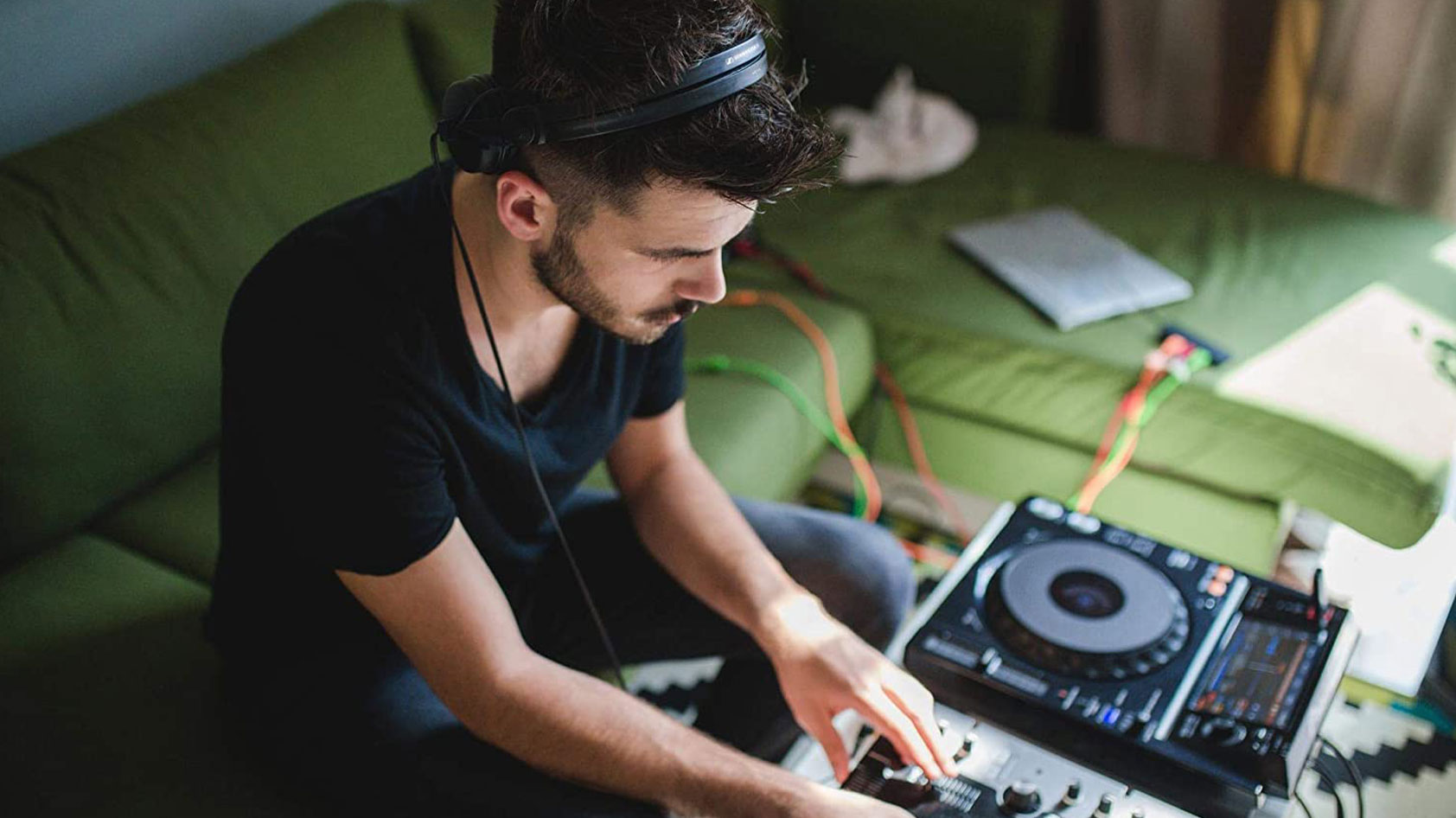
Sennheiser is a legacy audio company with a great pair of headphones for basically any use case—DJing is no exception. The HD 25 is the default pair of DJ headphones across the world, and for good reason: it has a lightweight frame with decent padding on the ear pads and headband. Rather than rotate to lay flat, the ear cups swivel up so you can free one ear to hear the crowd while you DJ.
The ear pads are fine and comfortable enough for long use, but it’s the isolation that makes it a workhorse. The padding combined with the closed-back design means you can really focus on what you’re doing. The Sennheiser HD 25 can push sound up to 120dB(SPL) which is important when you’re in a loud environment. The headset amplifies bass notes, so you can keep track of the beat on the fly. One thing to be aware of is that it comes with a 10-foot straight cable, so if you plan on using this in your everyday life, you might need a rubber band for cable management.

The Anker Soundcore Life Q20 is worth it for the money
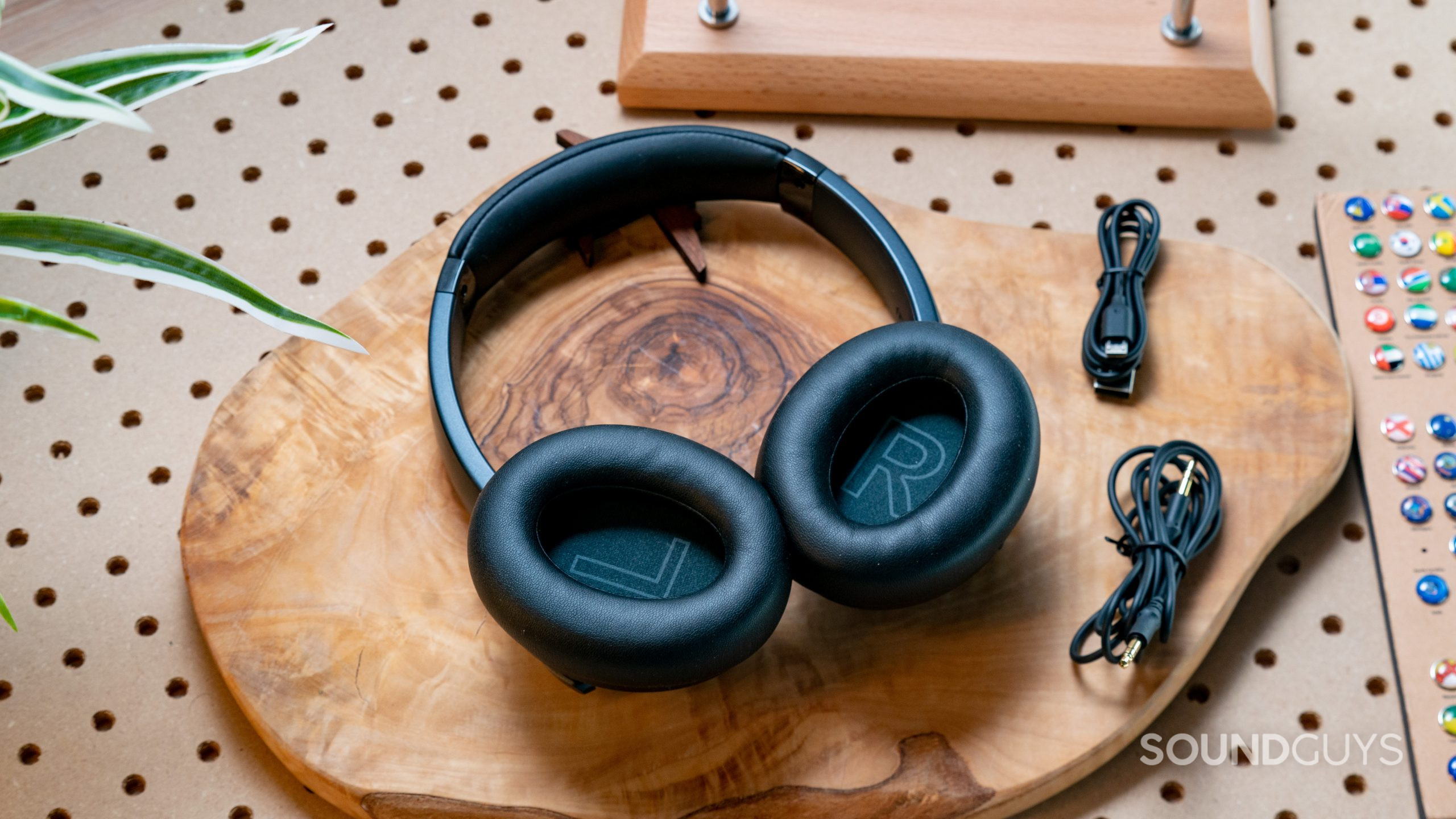
The Anker Soundcore Life Q20 stands out as a top pick for DJ headphones, primarily for its effective active noise canceling (ANC) at an affordable price. Priced at $59.99, it has an excellent battery life, delivering up to 51 hours and 50 minutes on a single charge, and respectable noise canceling capabilities. While they may not compete with high-end models, the ANC is sufficient to reduce ambient noise significantly, a crucial feature for DJs working in noisy environments.
Sound quality in the Anker Soundcore Life Q20 is decent, with some emphasis on sub-bass and higher frequencies between 2-5kHz, enhancing clarity and detail in the music. This sound profile may particularly appeal to those who enjoy genres with prominent sub-bass elements. However, there is an under-emphasis on the 150-600Hz range, which might affect the balance in certain tracks. The headphones also offer a comfortable fit, which is important for long DJ sets, and include a carrying pouch and cables for wired listening.
While it may lack some advanced features found in more expensive models, its strong core functionalities make it a practical and worthwhile option for those seeking essential features without a hefty price tag. They are also robust enough to handle the wear and tear of frequent transportation, as evidenced by their compact folding design and the inclusion of a drawstring travel pouch.

The V-MODA Crossfade 3 Wireless is the most durable pick
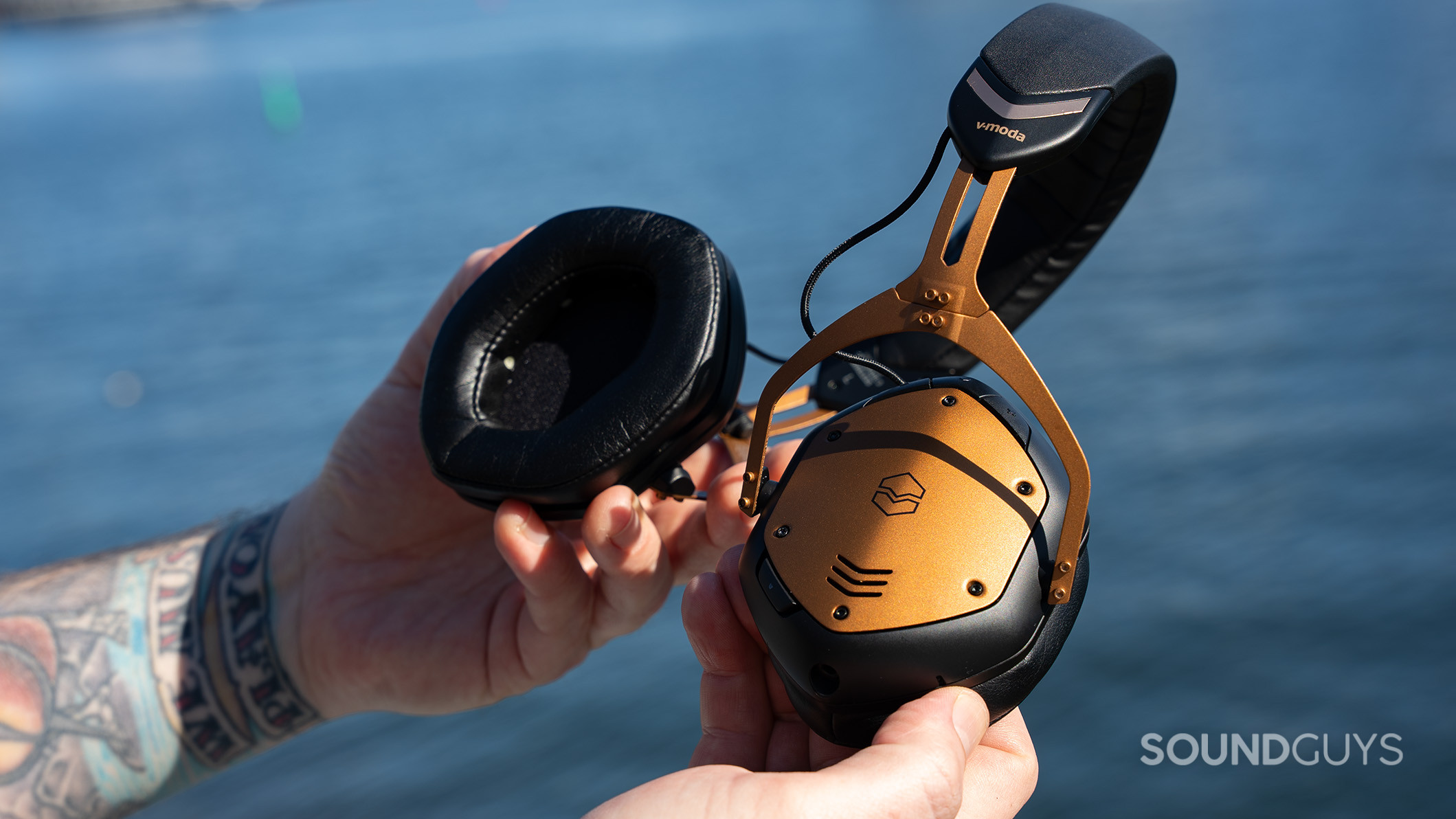
The V-MODA Crossfade 3 Wireless stands out for DJs with its durable design and bass-forward sound profile, priced at $299. Its robust build is tailored for the demanding club environment, ensuring reliability and longevity. The headphones’ emphasis on low frequencies benefits DJs by enhancing beatmatching capabilities in loud settings.
Additionally, aptX HD support and customizable EQ settings via the companion app allow for precise sound tailoring, further catering to the nuanced needs of DJing. While there are mentions of comfort concerns, these are minor compared to the overall utility the Crossfade 3 offers to DJs, making them a practical choice in a professional setup.

Loading chart ...
The chart above shows the default frequency response of the V-MODA Crossfade 3 Wireless compared to our headphone response preference curve. Below 40Hz, there is a significant drop-off, which means a lack of deep sub-bass. From 40Hz all the way to 300Hz, the headphones boost bass much more than our preference. This puts a focus on basslines and kick drums. There is a scoop in the mid-range from 400-800Hz, which makes vocals, pianos, guitars, and many other instruments sound relatively subdued. There is also a dip in the highs from 5-10kHz, which impacts cymbals and upper harmonics.
Take the Audio-Technica ATH-M50x from the studio to the house party
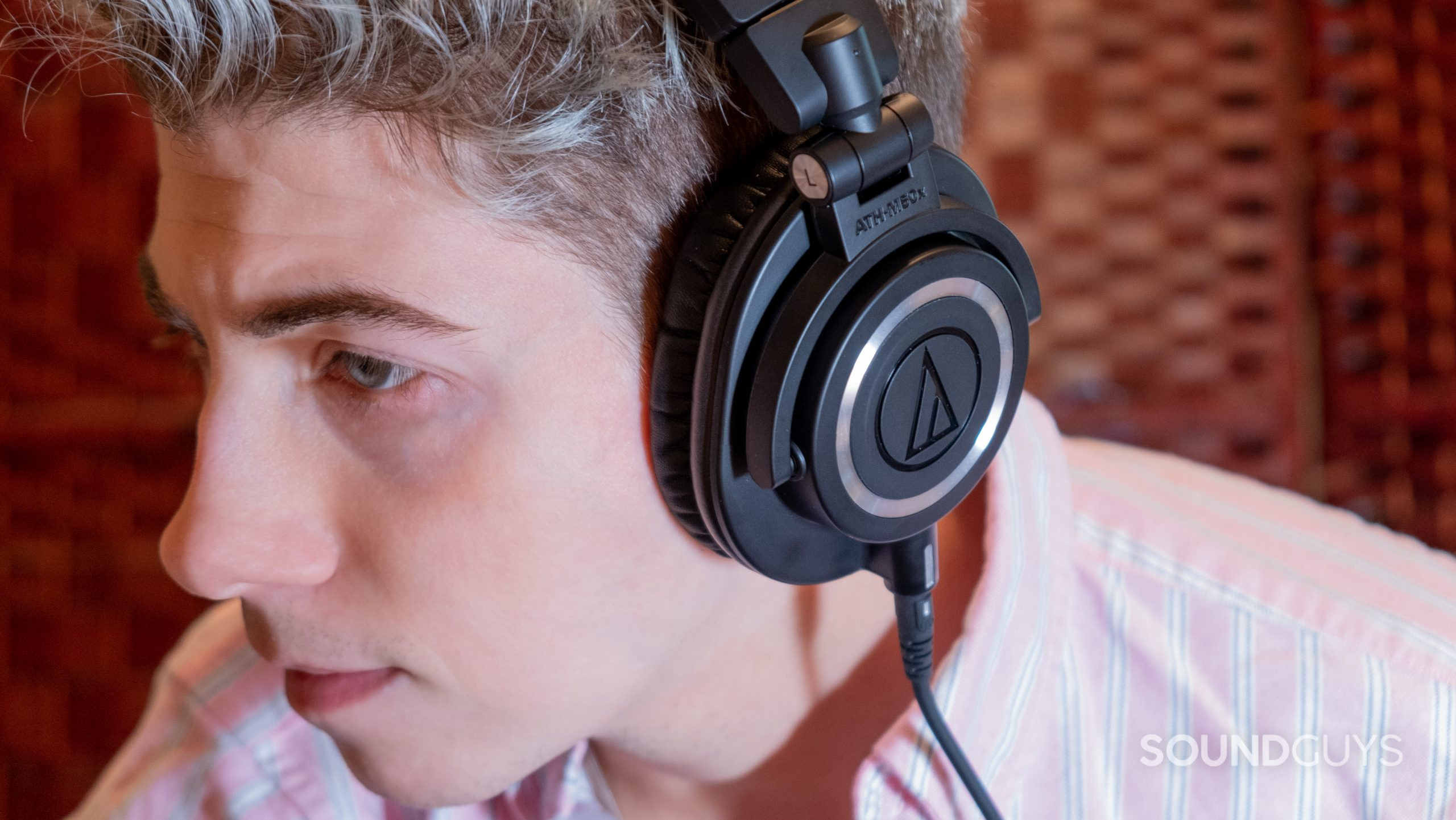
The Audio-Technica ATH-M50x is a classic pair of headphones because it can do just about anything, including accompanying you as a DJ. For the price, you get a powerful headset with a frequency response that ranges from 15Hz to 28kHz. The 45mm drivers pump out a good amount of bass, but you can still use this for audio editing. Not to mention, the rotating earcups and folding hinges make them portable and easy to use.
The headset is made of durable plastic that keeps it lightweight and strong, so you know it can take a rough tumble in your bag. You don’t get a headphone case, but Audio-Technica provides a pouch to keep the cables somewhat managed. You also get two cables: a 1.2-3m coiled cable and a 1.2m straight cable, along with a 1/8-inch connector.
It weighs 285g, which is a bit heavy, but the padding and wide headband do a pretty good job of distributing the weight across your noggin. If you want a headset that can work as well while you DJ, mix, edit, and enjoy music, this is it.

The AKG K371 is a comfortable headset for DJs
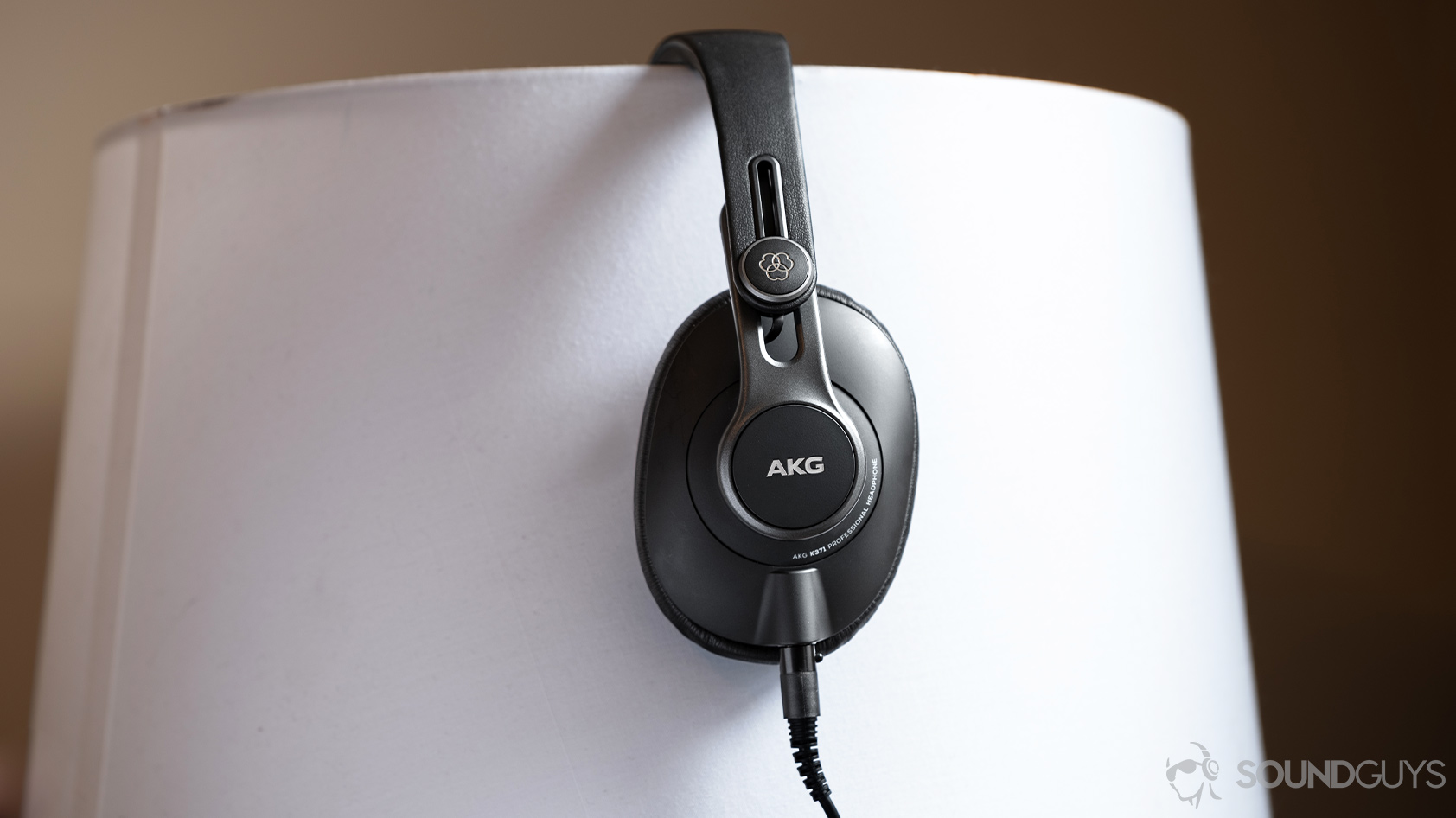
The AKG K371 is as comfortable as it gets on this list of the best DJ headphones. You get plush faux-leather ear pads that encompass the outside of your ear and a cushy headband, too. Each headphone rotates 180 degrees, so you can keep an ear open to your surroundings. This is a great way to gauge the crowd without completely removing your headset.
Like other DJ headphones, bass frequencies are louder than mids, but this difference is fairly tame. You may have a harder time discerning the bass notes through this headset compared to the previously listed Sennheiser HD 25. The isolation is okay, but it won’t mute your surroundings.
AKG provides a 1.2m straight cable and a 3m coiled cable, both of which terminate in a 3.5mm plug with a mini-XLR connector for the headset. You also get a 1/4-inch adapter for your audio interface. Although this lacks Bluetooth connectivity, it’s still rather portable since you can ball it up and drop it into the drawstring pouch.
For around $150 USD, the K371 is a great headset for anyone who prioritizes comfort.

Should you get the Pioneer DJ HDJ-X10 for DJing?
The Pioneer DJ HDJ-X10 is a great over-ear headset for listeners who need a durable build with water-resistant nano-coating. This is a real workhorse, and the $369 price shows it. Similar to the more affordable Pioneer HDJ-CUE1BT, these ear cups rotate to lay flat. The large 50mm dynamic drivers can reproduce a wide frequency range from 5Hz to 40kHz. Pioneer provides a coiled and straight cable for all of your audio needs.

The best DJ headphones: Notable mentions
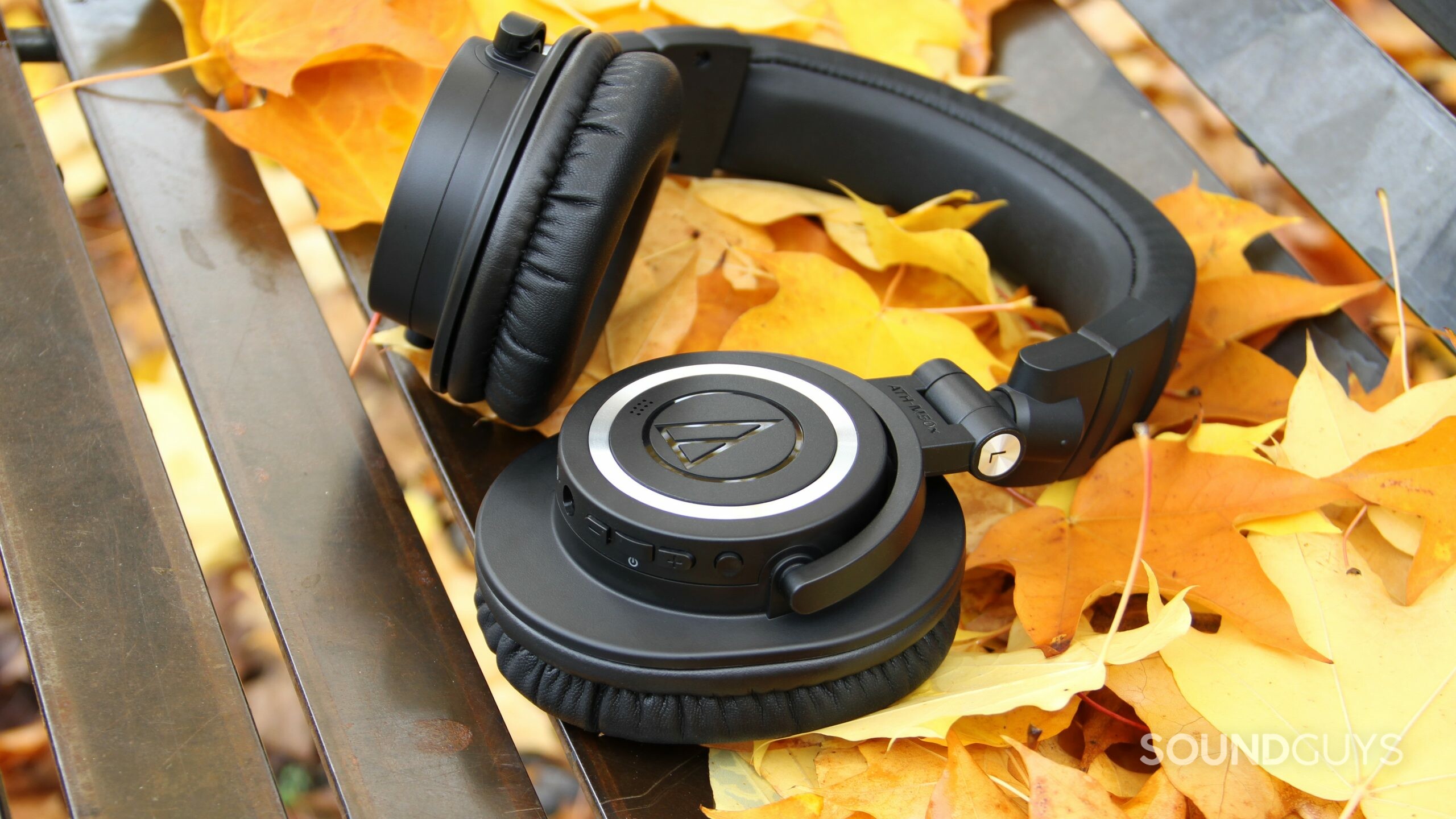
- Audio-Technica ATH-M50xBT2 ($198 at Amazon): This has all the features that we love from the Audio-Technica ATH-M50x but with Bluetooth functionality. You get nearly 65 hours of battery life on a single charge, and just 10 minutes of USB-C charging yields 180 minutes of playback.
- Behringer HPX6000 ($45 at Amazon): If you’re not looking to spend too much on a pair of headphones but still want something that hits all the core pillars of what you should look for, then go with the HPX6000 and its 50mm drivers.
- MAONO AU-MH601 ($49.99 on Amazon): If you only have $50 USD to spend, you really can’t go wrong here with these 50mm dynamic drivers and multiple inputs for daisy-chaining audio.
- Pioneer DJ HDJ-X5-S ($99 at Amazon): This headset has a 5Hz-30kHz frequency response with 40mm drivers and rotating ear cups. The durable metal build can withstand all of your travels and gigs.
Hold up! Something’s different:
Some of our picks’ frequency response and isolation charts were measured with our old testing system. We have since purchased a Bruel & Kjaer 5128 test fixture (and the appropriate support equipment) to update our testing and data collection. It will take a while to update our backlog of old test results, but we will update this article (and many others!) once we’re able with improved sound quality measurements and isolation performance plots. These will be made obvious with our new chart aesthetic (black background instead of white).
Thank you for bearing with us, and we hope to see you again once we’ve sorted everything out.
What to look for in a good pair of DJ headphones
Buying headphones for DJing is a whole different ballgame than buying standard consumer headphones. It’s important that your headset is a workhorse, and you want it to be durable, comfortable, and sound good. While we all want these things from our headphones, it’s different when you’re paying the bills with them, too.
Why is isolation important with DJ headphones?
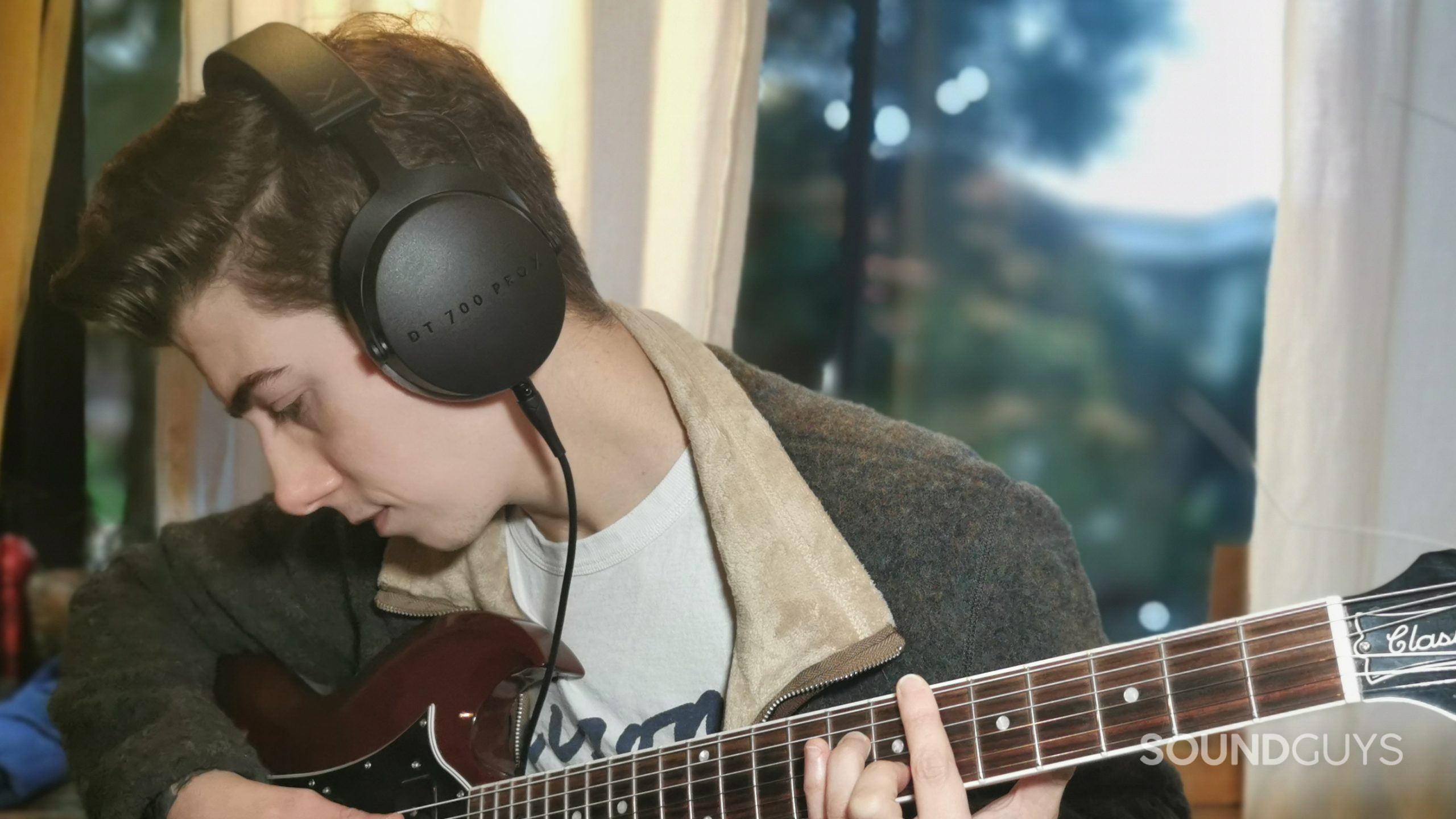
Isolation is arguably the most important feature to look for when buying a pair of DJ headphones. While open-back headphones have a well-earned reputation for having great sound quality and “soundstage,” they’re not going to be of much use in a loud club or at a backyard party. What you need is a pair of closed-back headphones that can keep the house sound out so you can focus on the music in your headphones with little distraction.
A good DJ isn’t just a part of the party; they’re choreographing it. They need to go from hearing what’s going on around them to disappearing into their headphones to set up the next track. That’s not possible unless you have a pair of headphones that can block outside noise at a moment’s notice.
How should DJ headphones sound?
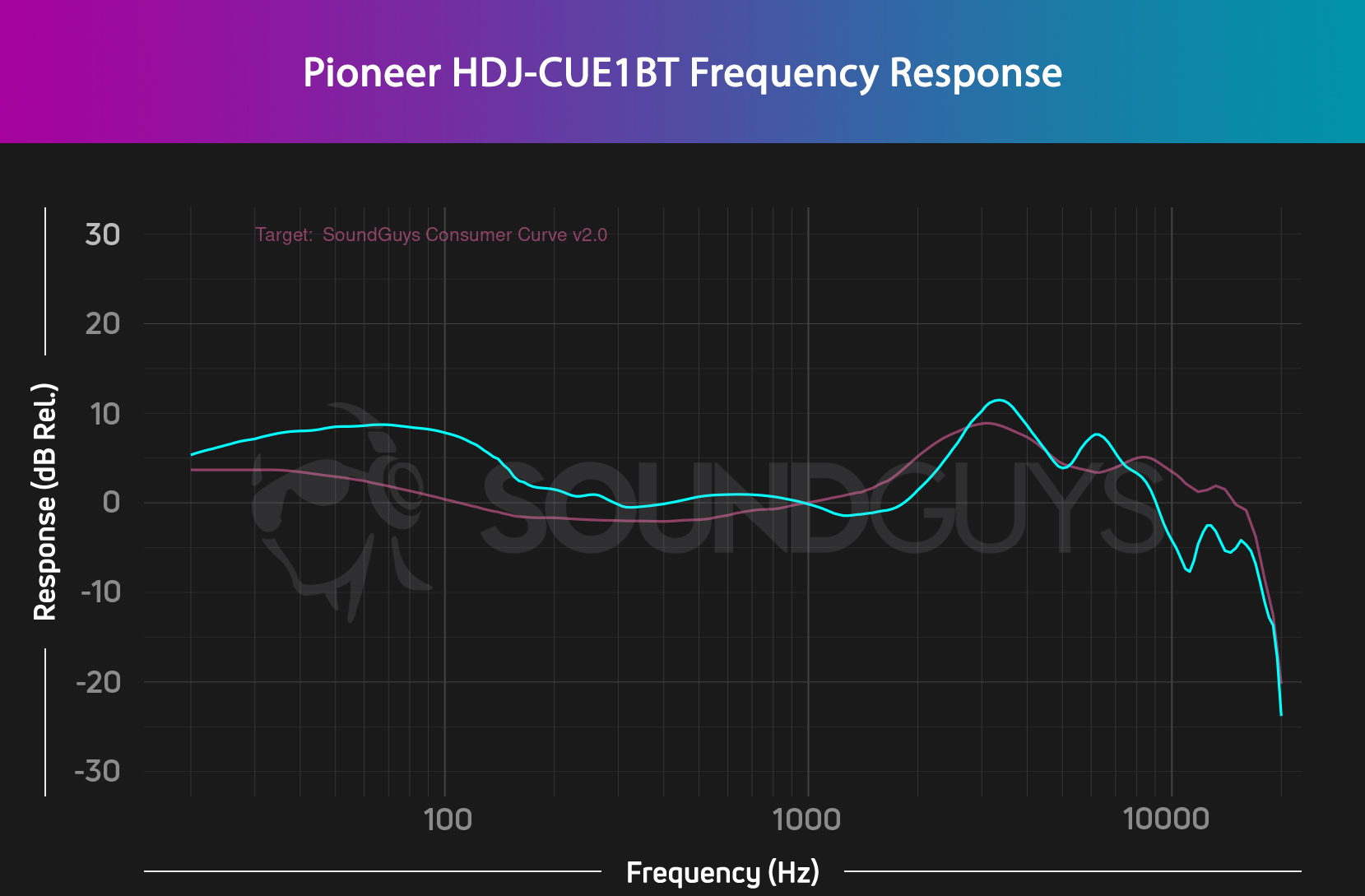
Spectral masking can cause loud sounds to mask out others, but how are you supposed to line up the next song if you can’t be sure that the bass is matched up nicely? That’s why the best DJ headphones give a bit of emphasis to the low end of the frequency response. General consumers typically prefer headsets with a bit of bass emphasis, but DJs will need even more to better hear the thump of a bass kick when you’re right next to the loudspeakers. This is different from studio headphones, where audio engineers are producing tracks for consumers to hear. In that instance, you want a more neutral or “flat” frequency response, which will look very different from the chart above.
Of course, there is software that can beatmatch for you, but we’re talking about real DJ skills here (shade thrown).
What makes a pair of headphones durable?
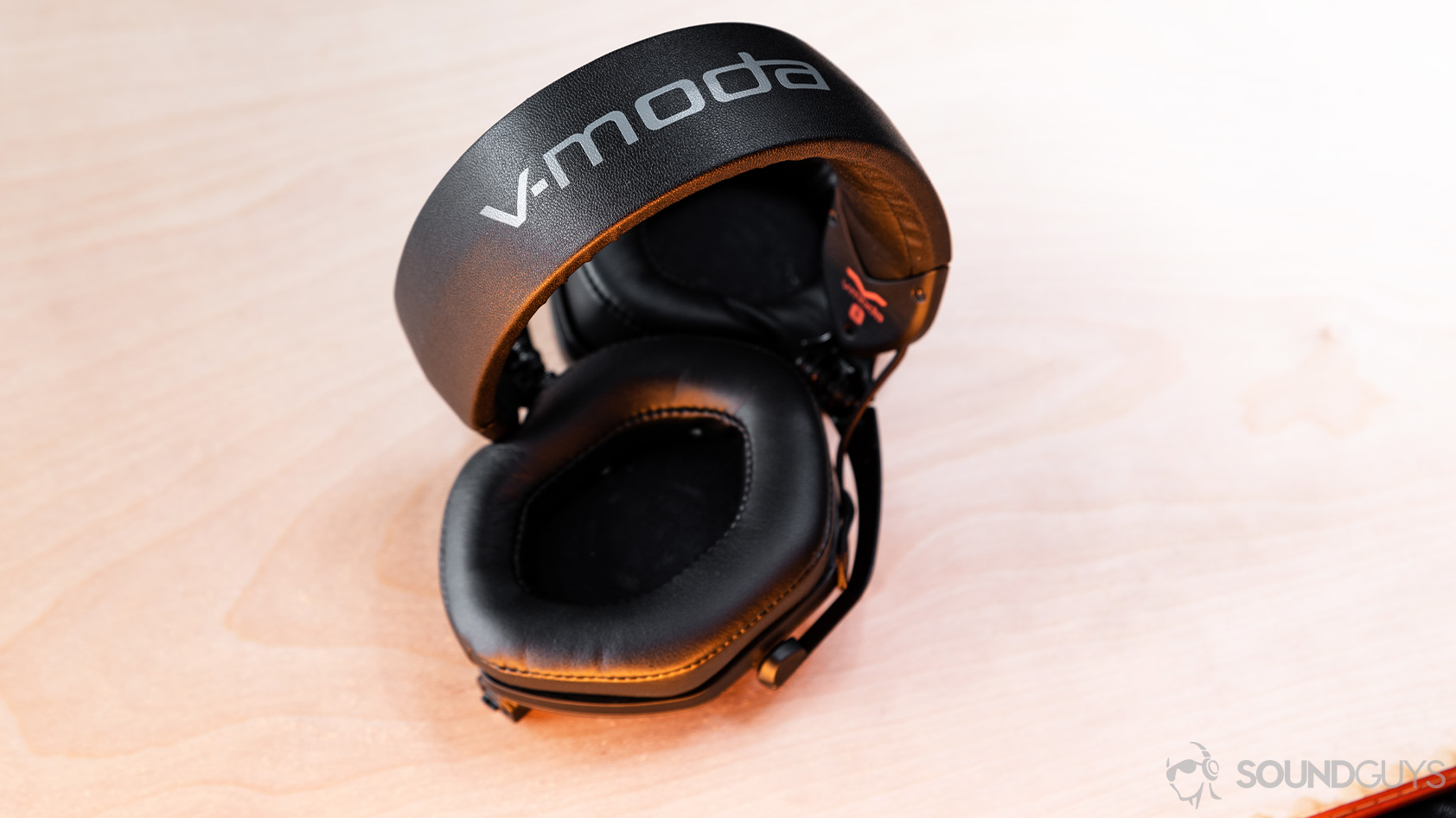
If you’re getting a DJ headset, you want it to be lightweight and comfortable since you’ll be wearing it for hours at a time, but you also want it to be sturdy. In that case, you should look out for headsets that use premium materials like metal, but if you want to keep the weight down, perhaps look for something with lightweight, strong plastics and a water-resistant nano-coating. Vinyl ear pads are also a good choice since they’re easy to wipe off after a sweaty session.
Can headphones damage your hearing?
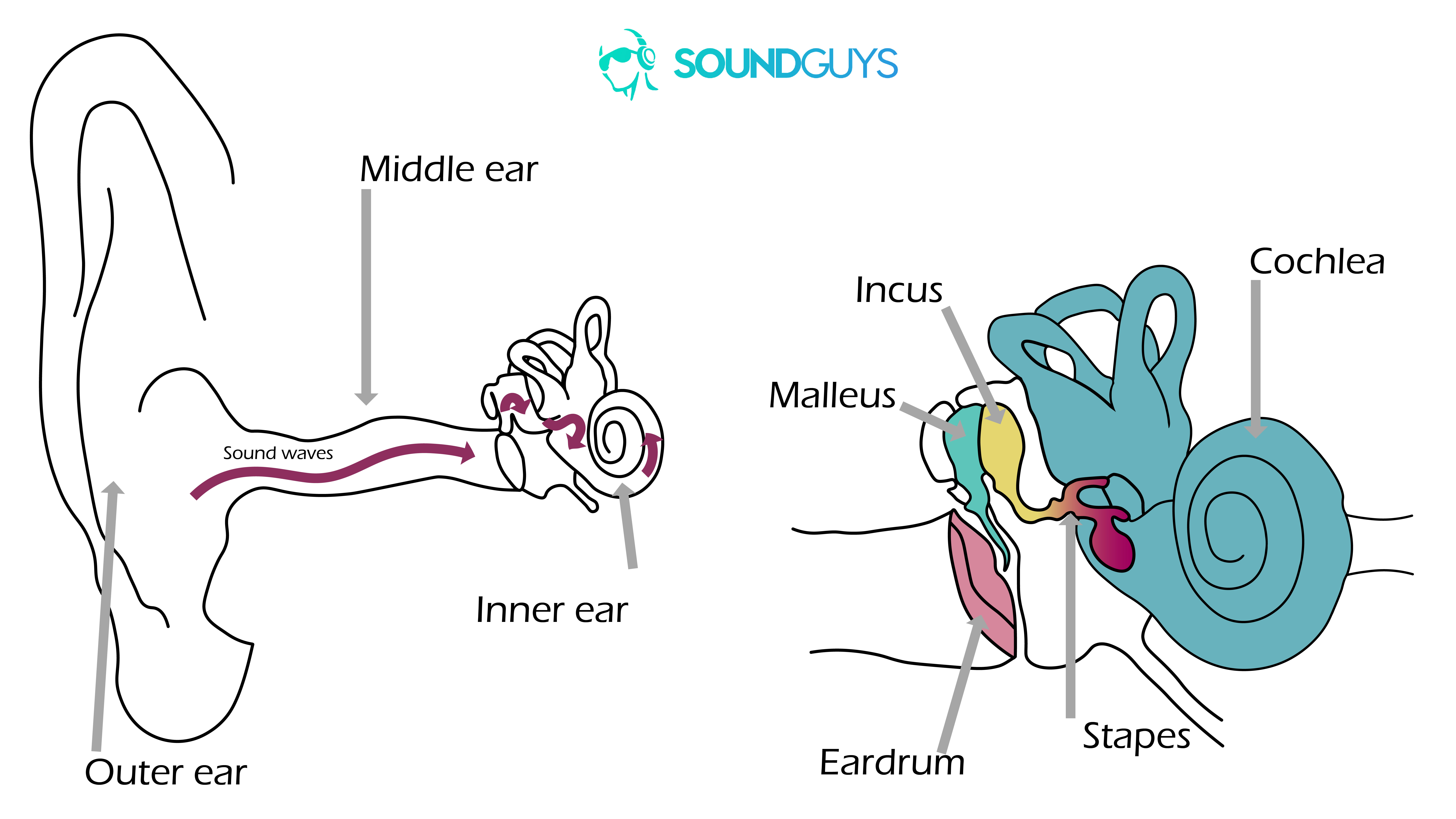
Of course, we have to issue a hard warning here to be mindful of how much stress you put on your ears. Once you barrage your ears with loud sounds and damage the tiny cilia in your ears responsible for your hearing, there’s no going back. That’s a permanent state of affairs. Hearing loss happens naturally as we age, but there’s no need to help the process along by listening to music at an unsafe volume.
How we choose the best DJ headphones
At SoundGuys, we perform objective tests to measure things like frequency response, isolation, microphone quality, and more. In order to do so, we use a Bruel & Kjaer 5128 head and torso simulator (HATS) with an anatomically realistic ear canal and outer ear. We also use a standardized setup to test the microphone quality of products with pre-recorded phrases from a calibrated artificial mouth in our test chamber. This allows us to present standardized microphone samples to you so you can judge the quality of various products and compare them across the board. After we collect all of this data, we then score each product through a variety of objective and subjective measures.
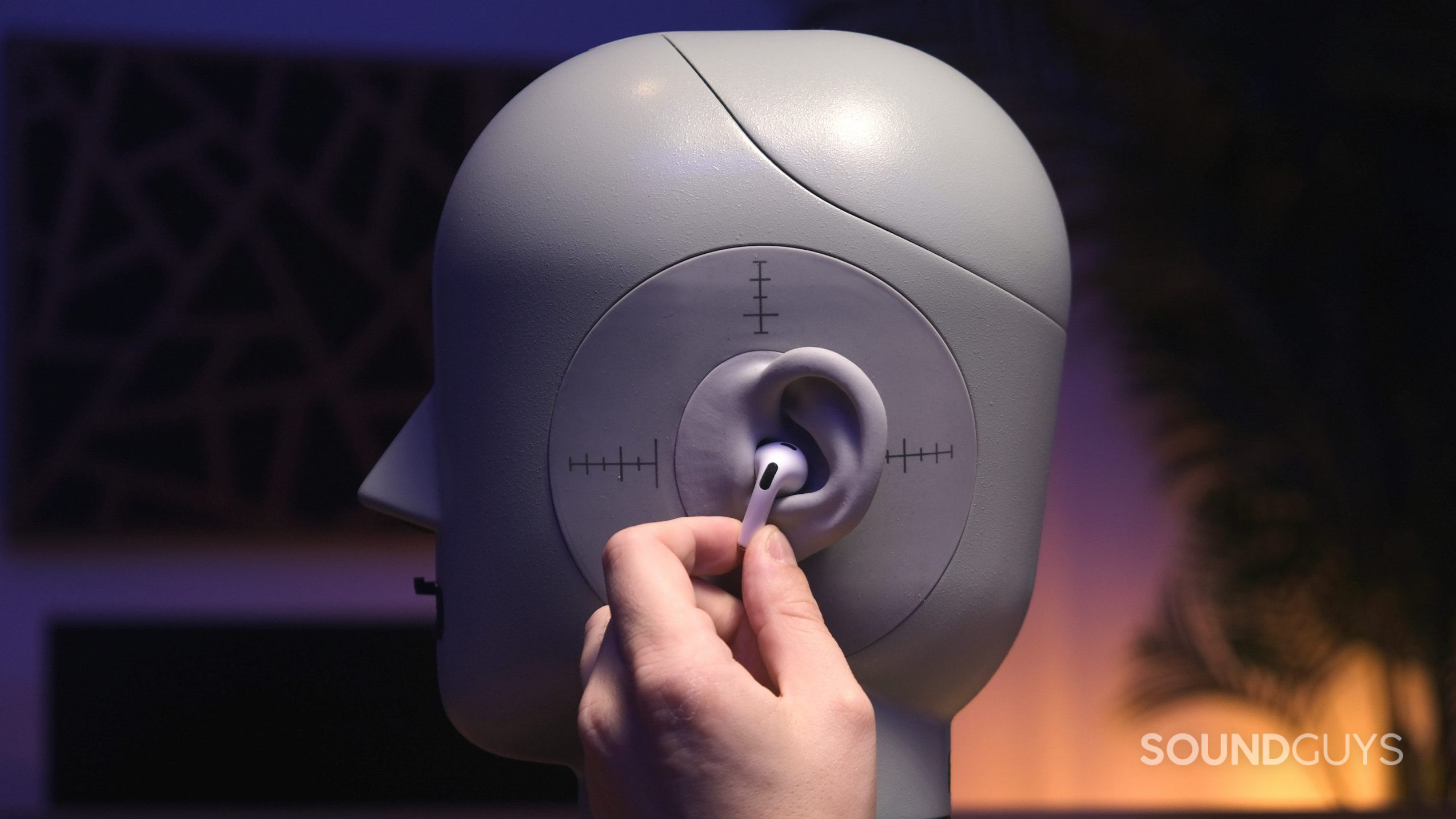
Our team then confers with one another regarding the best products for a given category, and we present our list to you. It’s not over after we hit “publish,” though. Instead, we treat every article as a living document that we update as new and worthy products come out.
Why you should trust SoundGuys
We have no ulterior motives. This means none of us receives compensation from manufacturers, and we don’t do direct sales. Our site features no “hit pieces.” SoundGuys only makes money when readers choose to purchase a product through a referral link to a retailer. Because of this model, we have no financial reason to suggest or prefer one product over another.
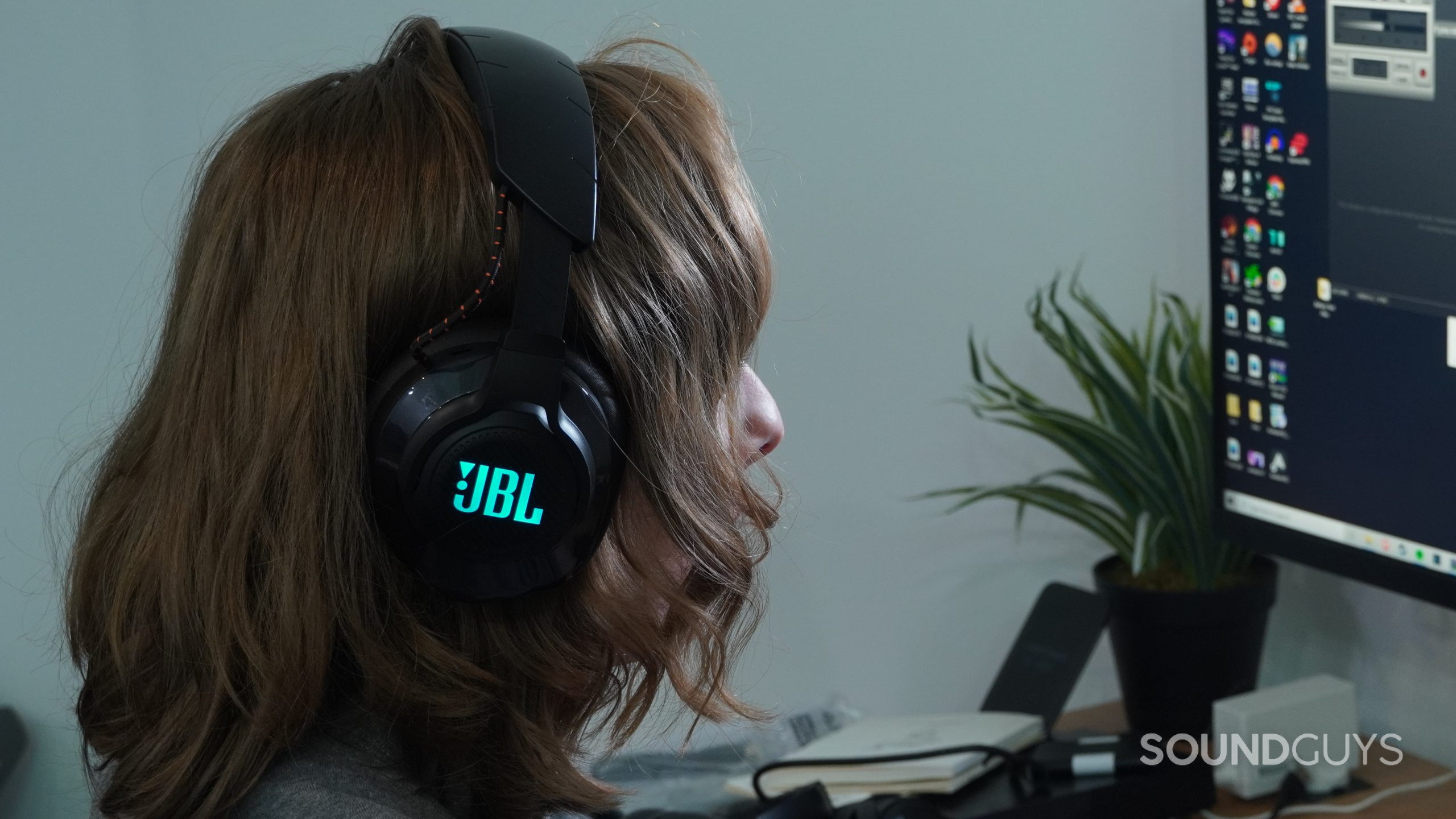
Our recommendations are based on our years-long industry experience and each product’s merit. We use review copies of products, but these are always returned after review or donated to worthy causes. In other words, we do our best to provide accurate and fair content without personal investment. We endeavor to correct our mistakes and constantly improve our testing methods. Our goal at SoundGuys includes making sure you are well-informed and can make the best decision for your needs.
Frequently asked questions about DJ headphones
Yes, you can really use any headset to DJ, but dedicated DJ headphones have their advantages. DJ headphones are typically more durable than your average consumer headphones, and they have a louder bass response.
DJ headphones are made specifically for DJs, meaning they need to help you perform and transition between tracks on the fly. Studio headphones are different because they’re for audio engineers who are producing tracks that the masses will hear from consumer headsets. It’s important to have a fairly neutral bass and midrange response when mixing with studio headphones.
While studio headphones are primarily designed for audio engineers to produce tracks with a neutral sound profile, they can be used for DJing. However, dedicated DJ headphones typically offer features like enhanced bass response and durability that can be advantageous in a live setting. If you’re using studio headphones, just be aware that they might not emphasize the bass as much as DJ-specific headphones, which can be crucial for beatmatching on the fly.
Wireless headphones can be convenient, especially when you’re moving around a lot. Some DJ headphones, like the Pioneer HDJ-CUE1BT, even come with Bluetooth functionality. However, for critical listening and real-time mixing, a wired connection is often preferred to avoid any potential latency or signal dropouts. If you’re considering wireless headphones for DJing, ensure they have a low-latency mode and a reliable connection.
While open-back headphones are praised for their sound quality and wide soundstage, they’re not typically the first choice for DJs. The reason? Open-back headphones don’t offer the same level of sound isolation as closed-back headphones. In a loud club or party environment, DJs need headphones that can block out external noise, allowing them to focus on the mix. That’s where the superior isolation of closed-back headphones comes into play.
DJs use their headphones as a tool to cue up the next track, listen to specific parts of a song, and ensure seamless transitions. They might be listening to the track that’s about to play next, beatmatching it with the track that’s currently playing out loud. This allows them to make smooth transitions between songs. Additionally, headphones help DJs gauge the crowd’s reaction and adjust their set accordingly without being completely drowned out by the ambient noise.
Technically, you can DJ with any headphones, including AirPods. However, AirPods are not the best choice for professional DJing. They lack the bass emphasis that many DJ headphones offer and their wireless nature could introduce latency issues. Plus, the sound isolation isn’t as robust as dedicated DJ headphones. While they’re great for casual listening, for critical DJ tasks, you might want to stick to headphones designed for the job.